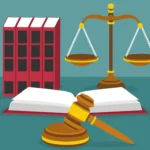In today’s fast-changing digital world, more and more transactions are happening online. This is also changing the way notary services work. In the past, getting something notarized involved a lot of paperwork and took a long time. But now, new technology is making notary services faster, more secure, and easier to access. This article looks at how technology and new laws are shaping the future of notary services, which play a crucial role in our modern society.
What is the Role of Notary Services in Modern Society?
Notary services are super important for making sure that personal and business transactions are legit. A notary public is like a neutral witness who checks that everyone signing a document is who they say they are and that they’re doing it on their own free will. This helps stop fraud and forgery, especially in stuff like real estate deals, affidavits, powers of attorney, and wills.
Nowadays, notary services are in high demand because all sorts of industries, like finance, healthcare, law, and government, need verified documents. Documents that are notarized carry a lot of legal weight and are crucial for making contracts and agreements official. Notaries don’t just witness signatures; they also verify copies, swear people in, and provide other important services to make sure documents are legally legit.
Technological Innovations in Notary Services
The digital age is revolutionizing notary services, introducing a host of technological advancements that are enhancing efficiency, security, and convenience. Here are some key innovations:
Electronic Notarization (eNotarization)
Electronic notarization allows notaries to perform their duties using digital documents and electronic signatures. This innovation streamlines the notarization process, reducing the need for physical documents and in-person meetings.
Remote Online Notarization (RON)
RON enables notaries to conduct notarizations online via video conferencing. This technology is particularly beneficial during times when in-person interactions are limited, such as during the COVID-19 pandemic. It also broadens access to notary services for individuals in remote or underserved areas.
Blockchain Technology
Blockchain provides a secure and immutable ledger for notarized documents. By recording notarizations on a blockchain, notaries can offer enhanced security and verifiability, ensuring that documents cannot be tampered with or altered after notarization.
Digital Identity Verification
Advances in biometric authentication enable notaries to verify identities with high accuracy. Live Scan technology captures digital fingerprints and compares them against databases to confirm identity, adding an extra layer of security to the notarization process.
Artificial Intelligence (AI)
AI-powered tools can assist notaries by automating routine tasks, such as document review and data entry, allowing notaries to focus on more complex aspects of their work. AI can also help detect potential fraud by analyzing patterns and anomalies in documents.
Mobile Notary Apps
Mobile applications are making it easier for clients to find and schedule appointments with notaries. These apps often include features like document uploading, real-time tracking, and secure communication channels.
Legal Trends in Notary Services
The rules for notary services are changing as technology advances. Here are some of the important legal changes to keep an eye on:
Regulation of Remote Online Notarization (RON)
Several places are changing their laws to allow for online notarization. These rules make sure that notarizing documents online is safe and legally valid. States such as Virginia and Florida in the U.S. have already put these kinds of laws in place, which other places might use as examples.
Standards for Electronic Notarization
Governments and industry organizations are creating guidelines for eNotarization to make sure it’s done in a consistent and secure way. These guidelines usually include rules for using electronic signatures, digital certificates, and safe communication methods.
Data Privacy and Security
As notary services are using more and more digital tools, it’s really important to keep people’s information safe and private. There are rules in the General Data Protection Regulation (GDPR) in Europe and the California Consumer Privacy Act (CCPA) in the U.S. that make sure notaries are careful with personal data. This means they have to use strong security and tell people exactly how they will keep their information safe.
Cross-Border Recognition
With globalization, it’s becoming more common for legal documents that are certified in one country to be accepted in another. International agreements and treaties, like the Hague Apostille Convention, help make this possible, but we still need more consistency in laws to make the process smoother for everyone involved.
Licensing and Training
The role of a notary public is becoming more specialized, leading to changes in licensing and training requirements. Many jurisdictions are raising the bar for notary qualifications, requiring more extensive training and continuing education to ensure that notaries are well-versed in the latest legal and technological developments.
The Future Outlook: What to Expect in the Next Decade
The way notary services work is going to change a lot in the future. We can expect to see new technology like blockchain and AI making the process faster and more accurate. More and more people will be able to get their documents notarized online, from anywhere in the world. This will make notary services more convenient for everyone.
As the demand for notary services grows, we might see new companies offering specialized notary services for things like real estate, legal contracts, and financial documents. These specialized services will be able to help different kinds of people with their specific needs.
Overall, the future of notary services looks bright. With new technology and changes in the law, notaries will continue to be important for making sure that important documents are trustworthy and secure, even in the digital age.
Conclusion
The way notary services work is changing a lot because of new technology and laws. These changes will make notary services faster, safer, and easier to use. For example, you’ll be able to get documents notarized online or from far away. There are also new ways to make sure people are who they say they are, like using artificial intelligence. Digital notary service is a prime example of these advancements, offering a streamlined, secure, and accessible solution for notarization needs in the state. It’s important for notaries, lawmakers, and others in the industry to accept and adapt to these changes so that notary services can keep up with how society is changing. This will help notaries keep playing their important role in stopping fraud and making sure everything is legal, and it will make them more valuable in a world that’s becoming more and more digital.






